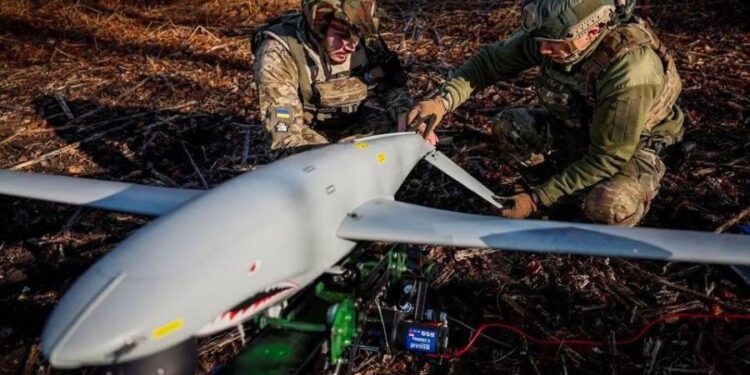Rising Hostilities: Drone Assault on Humanitarian Aid Vessel in the Mediterranean
In a significant escalation of conflict in the Mediterranean, a drone strike has targeted the “Freedom Flotilla,” a humanitarian ship en route to Gaza, while it was positioned near Malta’s shores. This incident has elicited strong reactions from flotilla organizers and is reportedly associated with Israeli military operations,raising concerns about the evolving dynamics of conflict in this region. The “Freedom Flotilla,” comprising activists and aid workers, aimed to deliver essential supplies to Gaza, where an ongoing blockade has severely restricted access to vital resources.This recent attack not only challenges international maritime laws but also highlights the deepening divide within the Israeli-Palestinian conflict as tensions escalate further.Euronews offers extensive coverage of this event and its wider geopolitical implications.
Global Condemnation Following Drone Strike on Aid Vessel
The recent drone assault on a humanitarian aid ship known as the “Freedom Flotilla” has ignited widespread outrage across nations and raised serious alarms among global observers.While making its way towards Gaza with crucial supplies, this vessel was struck off Malta‚Äôs coast, sustaining significant damage but fortunately avoiding major injuries among its crew members. Organizers have swiftly accused Israel of conducting a deliberate military operation aimed at hindering their mission to provide essential assistance to those enduring severe hardships. This incident has prompted various groups worldwide to demand investigations into what many are deeming an unlawful act against humanitarian efforts.
The international response features strong denunciations from human rights organizations, which accuse Israel of breaching international law and undermining humanitarian principles. Key points emerging from these discussions include:
- Breach of Humanitarian Norms: Critics argue that attacking vessels engaged in delivering aid violates established norms governing humanitarian assistance.
- Call for Accountability: There is increasing pressure on international bodies like the United Nations for accountability regarding these actions.
- Potential for Escalation: Observers view this incident as likely exacerbating tensions within an already volatile region.
The fallout from this attack could significantly alter relations between Israel and flotilla organizers. As world leaders assess developments surrounding this situation, diplomatic discussions are expected that will highlight how fragile international humanitarian initiatives can be amid conflicts.
Flotilla Organizers Charge Israeli Aggression Amid Crisis
The organizers behind the “Freedom Flotilla” have accused Israeli forces of executing an intentional drone strike on their aid ship off Malta’s coast‚ÄĒa move that reignites claims of aggression during an escalating humanitarian crisis in Gaza.Eyewitness accounts characterize the assault as a blatant violation of international law designed to safeguard missions aimed at delivering essential supplies such as food, medical care, and water amidst challenging conditions imposed by blockades.
The flotilla’s supporters have expressed outrage over this attack while urging immediate intervention from global authorities. They assert that Israel‚Äôs actions not only jeopardize lives aboard but also worsen existing hardships faced by civilians in need within Gaza. Key reactions include:
- International Outcry: Numerous human rights organizations have condemned the assault as aggressive behavior necessitating accountability measures.
- Demand for Investigative Action: Activists are calling for inquiries into how such strikes can occur without repercussions under current laws governing armed conflict.
- Tension Amplification:This event complicates already strained relations between Israel and various humanitarian organizations operating in affected areas.
Calls for Investigation and Enhanced Maritime Safety in Conflict Zones
The drone strike against the ‘Freedom Flotilla’‚ÄĒwhich occurred within international waters near Malta‚ÄĒhas intensified demands from numerous advocacy groups along with political leaders seeking thorough investigations into military conduct during conflicts involving civilian vessels. Such incidents raise critical issues regarding state actor accountability alongside adherence to established maritime safety regulations meant specifically for protecting non-combatant operations during warfare scenarios.
Organizations involved with aiding those impacted by crises firmly attribute blame toward Israeli forces claiming their actions undermine basic navigation safety principles while endangering both lives onboard ships like theirs along with vital resources intended for vulnerable populations facing dire circumstances due largely due blockades imposed upon them.
Crisis experts advocate establishing robust new protocols tailored explicitly towards enhancing maritime safety standards applicable across regions experiencing armed conflict situations; recommendations include:
- Clearly defined routes designated solely for use by relief efforts;
















